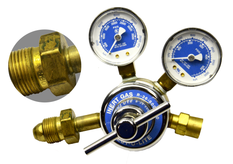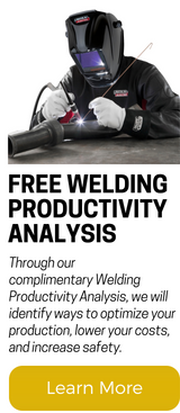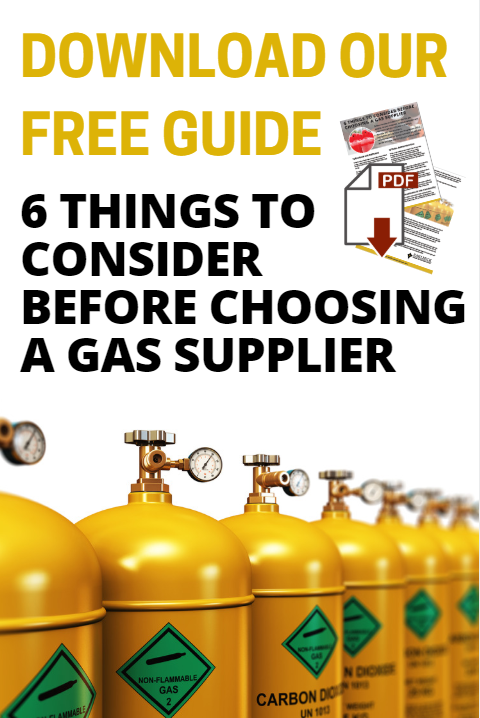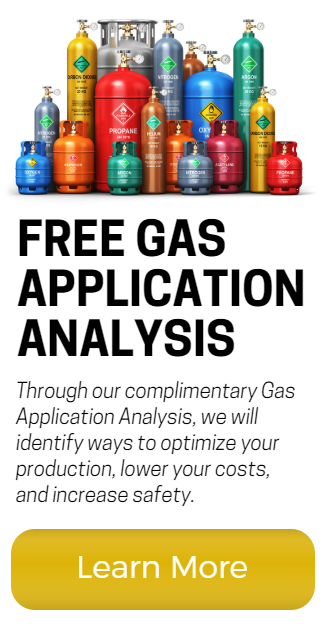 Do you need a gas regulator but aren't quite sure which type you need? This guide will outline the basic information you'll need to purchase the correct one for your application. Single Stage vs. Dual Stage Single stage regulators reduce pressure in a single step to deliver a pressure within a specific range. Regulators designed in this way will show a slight variation in delivery pressure as the cylinder pressure falls during use. For this reason, single stage regulators are best suited for applications where a constant outlet pressure is not critical, where an operator can monitor and readjust pressure, or where inlet pressure is constant. Dual stage regulators perform the same function as single stage regulators. However, delivery pressure remains constant as cylinder pressure decreases, and greater accuracy in pressure control is maintained because the pressure reduction is performed in two steps. Dual stage regulators are recommended for applications requiring a constant outlet pressure over the life of a gas cylinder. Materials of Construction The materials of construction for a regulator should be selected based on the properties and purity of the gas being used. Regulators are typically made from brass, aluminum, and 316L stainless steel. Brass is compatible with most of the non-reactive gases. A choice of forged body or barstock construction is available. Forged body regulators are economical; however, their internal surface finishes are relatively rough as compared to barstock body regulators. Barstock body regulators have all wetted surfaces machined to a smooth finish, which reduces the possibility of contamination. 316L stainless steel is highly corrosion resistant and is suitable for use with many of the highly corrosive gases in their anhydrous form. Aluminum is an economical lightweight alternative to stainless steel for many of the mildly corrosive gases. Consult Earlbeck Gases to determine suitable materials of construction. Cylinder Connections In the US, the Compressed Gas Association (CGA) has designated specific cylinder connections for each gas service and pressure rating. Refer to CGA publication V-1 for more information. Please note that a CGA connection limits the temperature range of a regulator to the guidelines of the connection. Once you have determined your gas’s CGA number, you will use the corresponding CGA on your gas cylinder. CGA numbers are typically (but not always) stamped on the regulator just above the threads of the cylinder connection. Click here for our printable guide of the common outlet CGA numbers. Specific Applications While a single or dual stage regulator of the appropriate material will suffice in most gas services, some applications require specially designed regulators. If you are unsure about your requirements, please contact Earlbeck Gases for assistance. |
- Products & Services
- Gases
-
Welder Training
-
Program Overview
>
- Pricing and Class Schedule
- How to Register
- Tour Our Facility
- Why Earlbeck Technical Center
- On Site Training
-
Frequently Asked Questions
>
- Are student loans, financial aid, or scholarships available?
- How long does it take to complete the program?
- What should I bring for my first day of class?
- Where can I find information about weather related closures or delays?
- Do you offer job placement?
- How Much Money does a Welder Make?
- What is the Job Outlook for Welders?
-
Program Overview
>
-
Weld Testing
- Welding 101 Blog
- Locations & Contacts
- More...
Baltimore, MD8204 Pulaski Hwy
Baltimore, MD 21237 Welding Supply & Gas Showroom Hours: Mon- Fri 7:30 AM - 5PM Phone: (410) 687-8400 Fax: (410) 687-1394 Welder Training & Testing Center Phone: (410) 687-8400 |
Beltsville, MD10792 Tucker St
Beltsville, MD 20705 Welding Supply & Gas Showroom Hours: Mon-Fri 7:30AM - 4:30PM Phone: (301) 937-8884 Fax: (301) 937-1811 6170 Hughesville Station Place
Hughesville, MD 20637 Welder Training & Testing Center Phone: (410) 687-8400 |
York, PA95 Aberdeen Rd
York, PA 17406 Welding Supply & Gas Showroom Hours: Mon-Fri 7:30AM - 4:30PM Phone: (717) 916-6611 Fax: (717) 764-1281 Welder Training & Testing Center Phone: (410) 687-8400 AACC Clauson Center for Innovation and Skilled Trades101 College Parkway
Arnold, MD 21012 Welder Training & Testing Center Phone: (410) 687-8400 |
Scranton, PA4961 Birney Ave
Scranton, PA 18507 Welding Supply & Gas Showroom Hours: Mon-Fri 7:30AM - 5:00PM Phone: (570) 457-8954 3427 N Main Ave
Scranton, PA 18508 Welder Training & Testing Center Phone: (410) 687-8400 |




 RSS Feed
RSS Feed